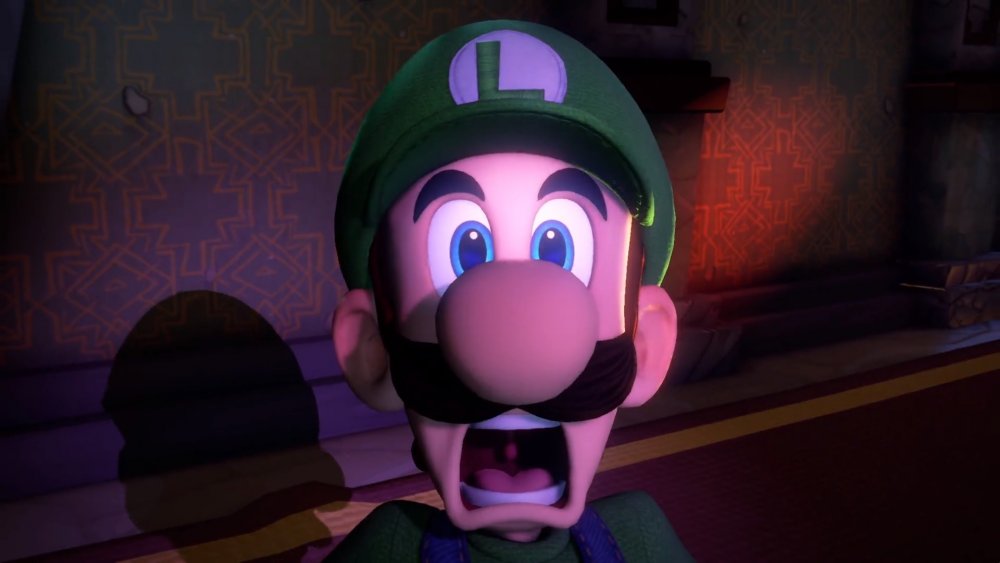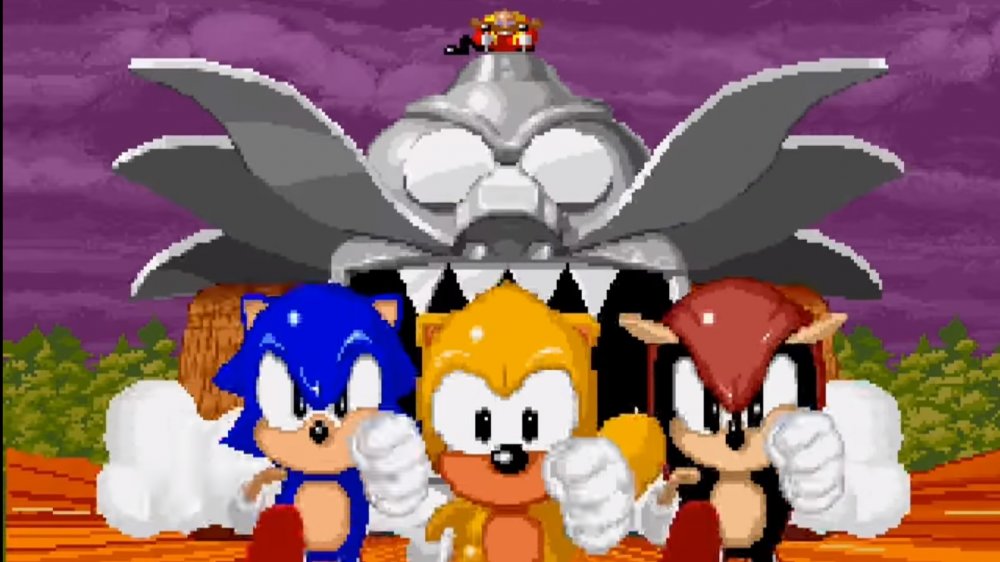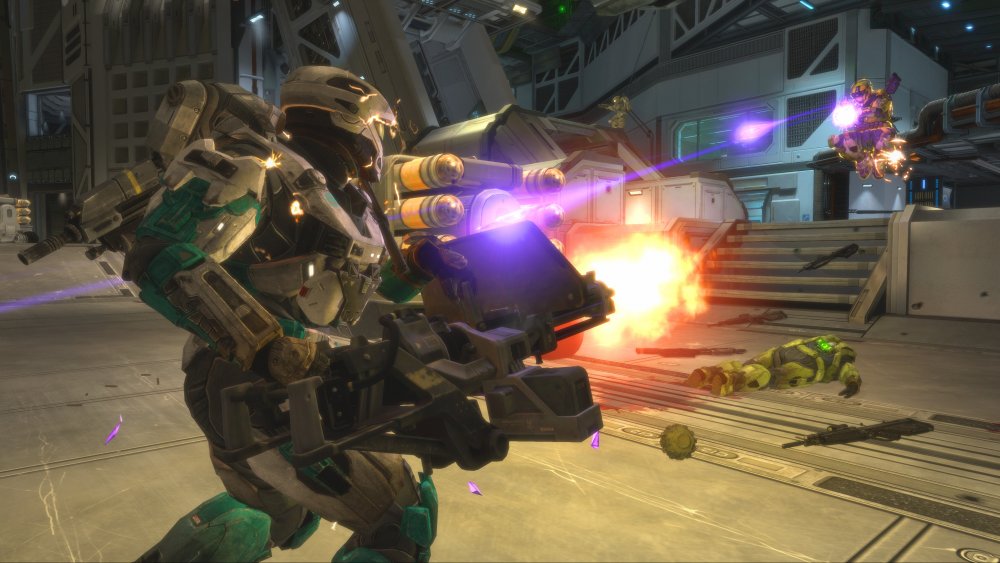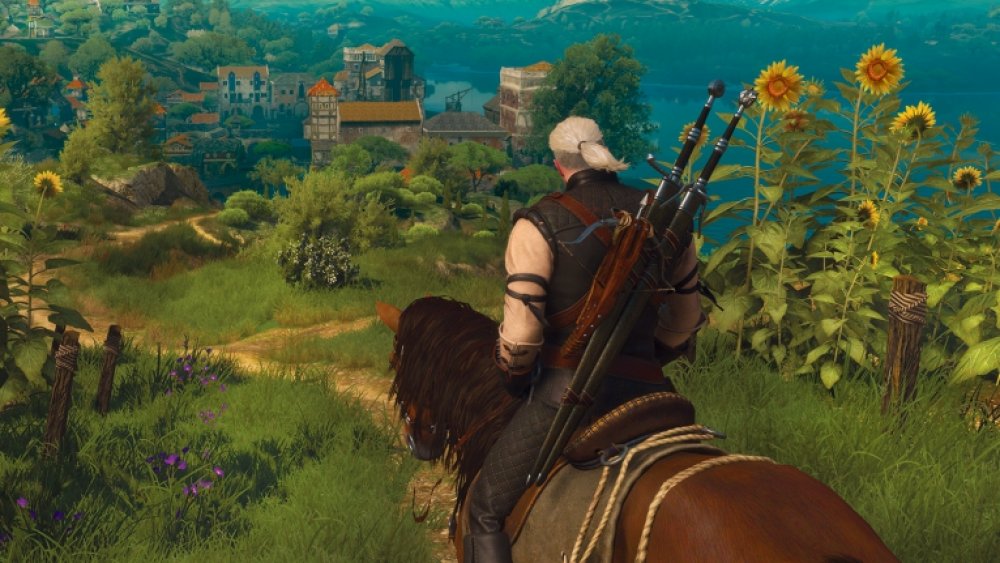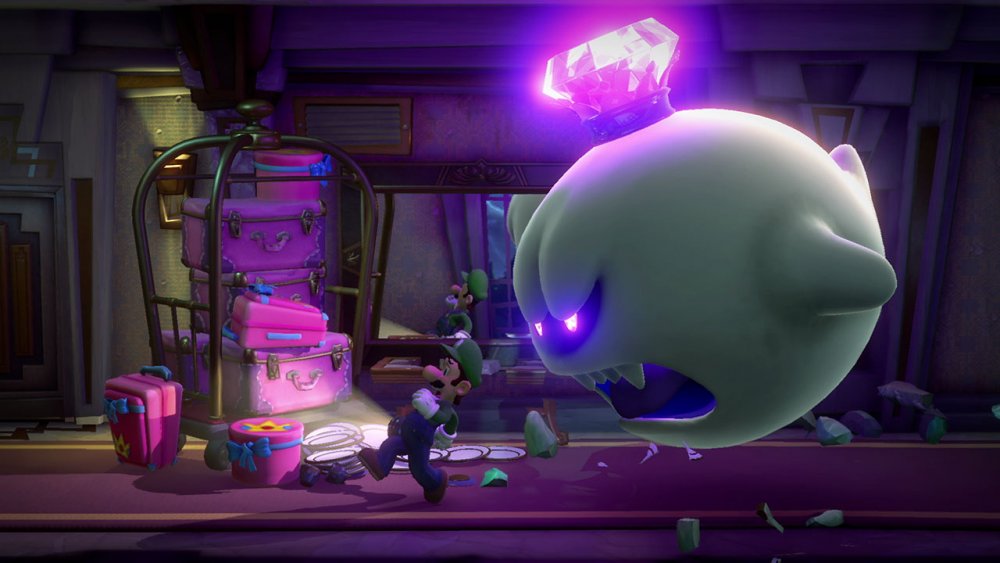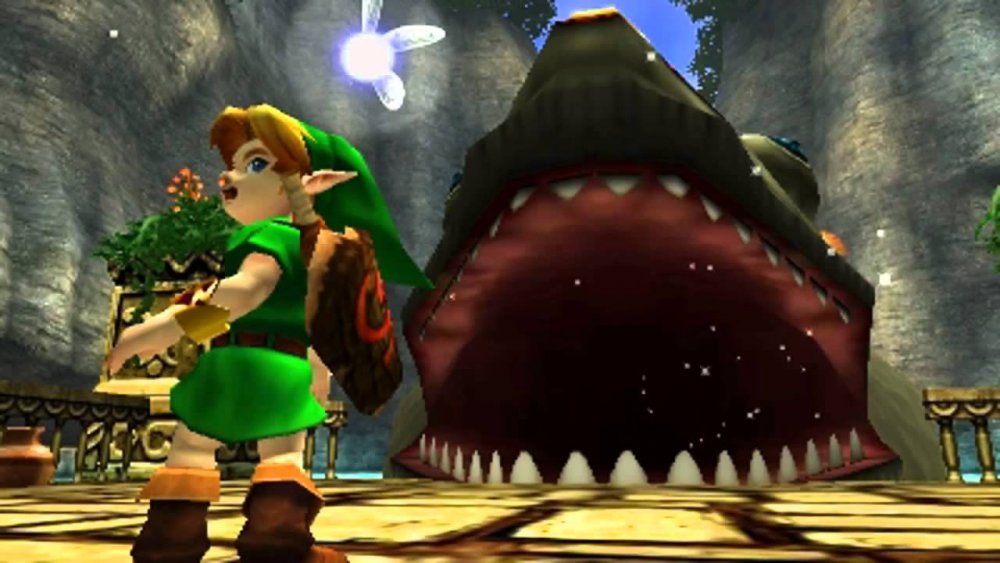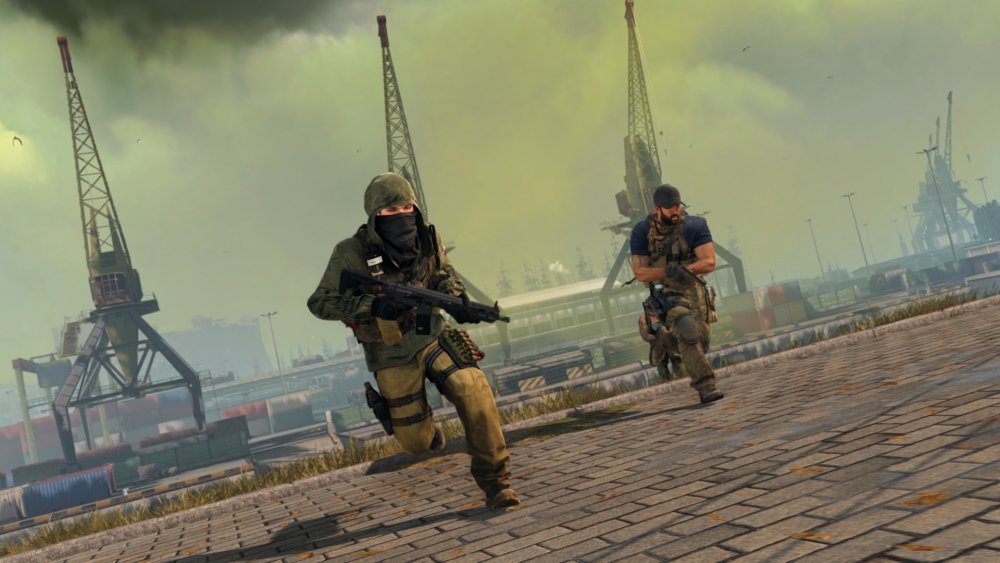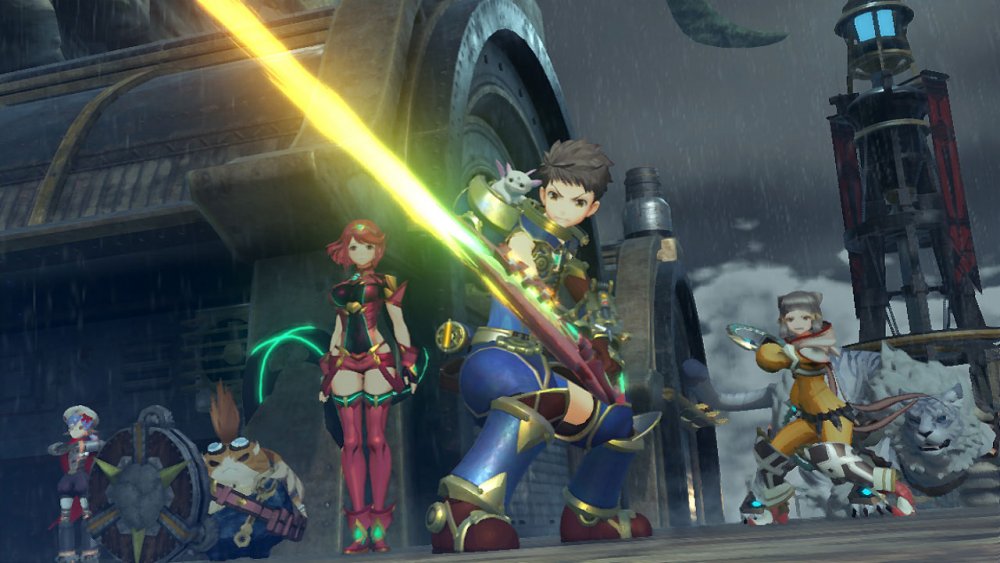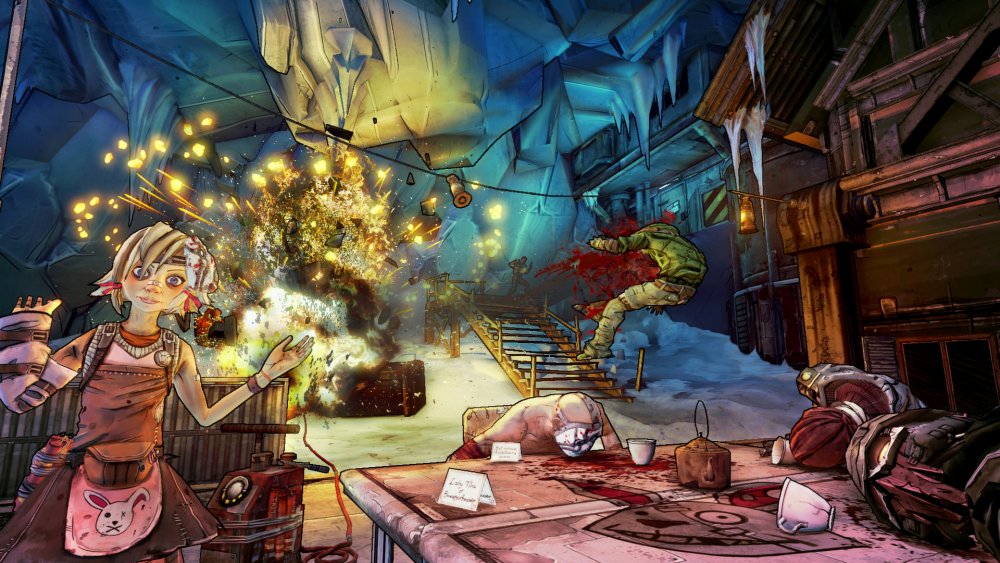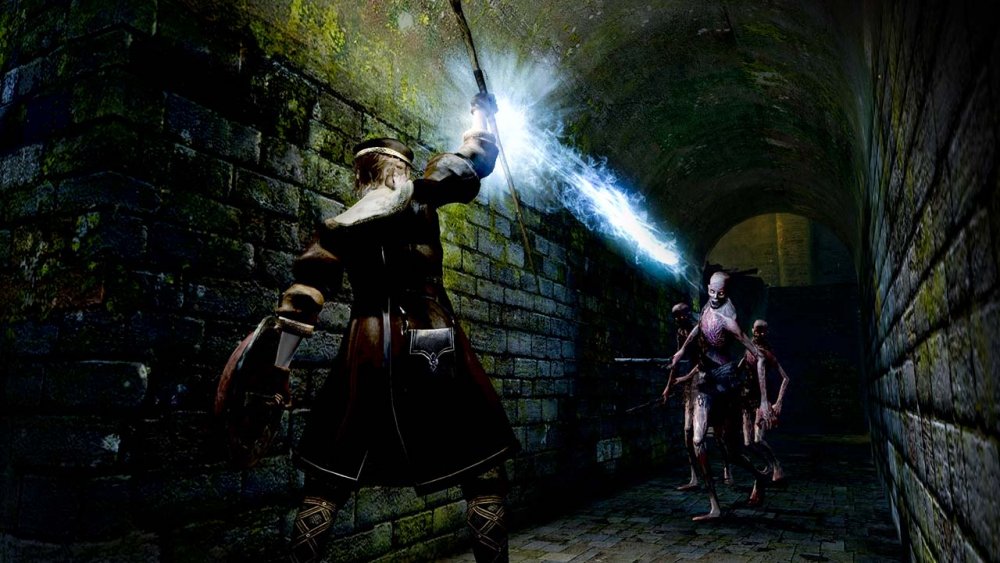Great Games Ruined By Terrible Audio
Every piece of entertainment is greater than the sum of its parts, and the more parts there are, the more ways it can fail. Books rely on characterization, imaginative prose, and a narrative, while video games add factors like acting, music, mechanics, and sound design. The end result is a Rube Goldberg machine that can grind to an anticlimactic halt if one piece is missing or poorly implemented.
In video games, audio can mean the difference between enjoyment and the desire to seek a refund. A powerful soundtrack can provide a sense of beautiful, alien calm or accentuate a heart-pounding race against oblivion, but a horrible song makes ears bleed. The same applies to other audial aspects of video games, as sound mixing and effects can make or break even the greatest of video games. Even if a game's story and set pieces are award-winning, yet the protagonist's fists unleash a generic "splat" effect whenever they hit an enemy, virtually nobody will want to play the game for an hour, let alone eight.
Let's look at some examples of good games that are single-handedly decimated by bad audio decisions.
Repetitive voice lines can kill a game
Rare video games can be an audiophile's treasure trove. If gamers hadn't rediscovered the nearly forgotten Action 52, nobody would know about Cheetahmen's surprisingly rocking theme. On the opposite end of the spectrum is SegaSonic the Hedgehog, a decent arcade game that would be lost in the desert of forgotten titles had it not introduced fan-favorite characters Mighty the Armadillo and Ray the Flying Squirrel. Then again, maybe the arcade game should be buried, given its abysmal audio.
You probably wonder if you read that correctly. A Sonic game with bad audio? Even Sonic the Hedgehog from 2006 – one of the worst entries in the franchise — has some pretty sick beats. Admittedly, SegaSonic the Hedgehog features great music, but its tunes aren't the problem. Instead, voice lines are the game's Achilles' heel. Each character (minus Dr. Eggman) has two or three lines that are repeated ad nauseam. There's no variation — just the same lines over and over again.
If you find a SegaSonic the Hedgehog cabinet, you should give the game a spin, but only if you bring your own soundtrack. If you listen to Sonic, Mighty, and Ray scream for too long, you might feel the uncontrollable desire to let Dr. Eggman win.
Halo: Reach's heavy breathing is a bit much
The developers of the original Halo titles knew how to make their games feel epic (not saying the recent Halo games are bad, mind you), thanks to pitch-perfect audio. From Steve Downes as the quintessential hero Master Chief to the iconic theme song that mixes space opera majesty with tribal motifs and throat singing, the Halo series' sound design can do no wrong. Well, almost no wrong, as Halo: Reach was a bit of a stumbling block.
Halo: Reach was Bungie's big sendoff to the franchise before the development baton was passed to 343 Industries. Hype behind the game was big enough to swallow a planet even though Reach stars a new group of Spartan supersoldiers instead of Master Chief. This change is damning since for some odd reason, Halo: Reach's Spartans can't sprint two feet without heaving an odd, asthmatic breath. Master Chief never suffered from this problem, so what changed?
Spartans are supposed to be genetically, mentally, and technologically enhanced warriors with the stamina of a racehorse and suits of armor that offer more protection than real-world tanks. They are biologically designed to have no breathing problems, no matter how far they run. Halo: Reach's heavy panting is just weird and shatters any illusion that Spartans are supersoldiers — and also explains why cardio is important.
The Witcher 3 is a masterclass of audio ... except on the PlayStation 4
The Witcher 3 is one of if not the best game of the previous decade. The game's story and side quests are gripping and memorable. Its open world surpasses virtually all others. And its DLC offers more content than most AAA titles. The Witcher 3 is virtually perfect — as long as you play it on PC. If you own the game on a PlayStation 4, you are experiencing an audibly inferior product.
The PlayStation 4 is the one of the most popular current-gen consoles, so you would expect developers to make sure that the The Witcher 3 PS4 port provides an experience that would make Dandelion weep. However, some gamers claim the PS4 version of The Witcher 3 suffers from severe audio issues.
Reports vary from person to person. For some, music fails to load, while others complain about annoyingly loud ambient sounds. However, the most common complaint is that character dialogue cuts out erratically.
Since The Witcher 3 is all about ambience and storytelling, these problems get in the way of your experience. That doesn't mean the PC and Xbox One versions are audio bug-free, just that they suffer from audio issues less than the PS4 rendition.
Luigi's Mansion 3 is super annoying about your health
Every video game indicates low character health differently. Some make the screen throb red to simulate blood rushing into eyeballs, while others have a pulse-pounding song devoted to telling players they took too many blows to the head. These visual and auditory signals are the video game equivalent of a car alarm and need to strike a balance between annoying and attention-grabbing. Luigi's Mansion 3, unfortunately, doesn't understand that and drives headlong into annoying territory.
When players lose enough health in Luigi's Mansion 3, an electronic heartbeat occasionally plays. The sound is aggravating, but it bleeps infrequently enough to be tolerable. However, what happens when the player loses even more health without dying? The sound plays even faster and resembles a heart monitor when someone has a heart attack. Even worse, the sound drowns out other noises, some of which help players avoid losing even more health.
While this electronic beeping is supposed to remind players to find health, instead it just makes everyone want the noise to stop. Maybe players actually seek out health, or maybe they let the game kill them. Either solution is viable since continually listening to that noise is a fate worse than death.
Perhaps ghosts are so evil in Luigi's Mansion 3 because their brains are constantly assaulted by that beeping.
Navi's constant pestering in Ocarina of Time is torture
When designing large games players can explore at their leisure, developers usually implement systems so audiences know where to go next. Many games use features like glowing trails and giant beams of light only the player sees, but in The Legend of Zelda: Ocarina of Time, developers had the ingenious idea of implementing a fairy companion who occasionally reminds players where they need to go. She also provides an encyclopedia's worth of enemy weaknesses, killing two Guays with one stone. If only she couldn't speak.
Navi is a running joke among gamers because of her exasperating nature. While players can wander The Legend of Zelda: Ocarina of Time's world with few restrictions, if they go off the beaten path, Navi will occasionally — and by occasionally we mean constantly — chime in with a cry of "Hey, listen!" Even when players run towards the next plot-crucial destination, she will still tell them to head in the direction they were already running. Players can try to ignore Navi, but it's only a matter of time before she tries to get their attention over and over again.
Navi's constant pestering and high-pitched voice are the bane of many gamers, and probably why Nintendo abandoned the fairy companion idea very quickly.
It's hard (or easy) to win at Warzone when nobody can hear footsteps
Nine times out of ten, a gamer will use a Monolithic Suppressor while crafting a Call of Duty: Warzone weapon loadout. This overpowered attachment muffles gunshots while also (somehow) increasing weapon range. Plus, the suppressor fits a wide variety of guns, so it's no wonder players are obsessed with this attachment. Who wouldn't want to transform ear-shattering weapons like sniper rifles and shotguns into whisper-quiet assassination tools? Then again, it's easy to sneak up on opponents (and vice versa) with or without the Monolithic Suppressor because Warzone doesn't follow the laws of auditory physics.
Ever since day one, Warzone had a problem with footsteps. Teammate footsteps are perfectly audible, but enemy footsteps? You would have an easier time locating an invisible mouse. Of course, many players have found solutions to this issue, but they rarely agree with one another. Some claim you should set the game's audio mixing to "Boost Low," others believe the solution lies in reducing game music and dialogue volumes while changing the mixing to "Boost High."
Since no two audio setups are the same, players need to experiment and hear what works for them. However, the point remains that Warzone's footstep audio mixing is less than ideal out of the box. Without changes, players are charging into battle blindly both figuratively and literally.
Xenoblade Chronicles 2's guards really don't think you can take them
If you own a Nintendo Switch, you probably own Xenoblade Chronicles 2. It is a fantastic action RPG with voice acting that is as hilarious (and British) as the previous entries. Moreover, the game doesn't star a protagonist who spouts a catchphrase every two minutes (Reyn). However, Xenoblade Chronicles 2 does include some questionable battle banter that re-contextualizes the game's entertainment factor, or at least tarnishes why it's so enjoyable.
As players explore the world of Xenoblade Chronicles 2, they encounter different nations, including the militaristic Empire of Mor Ardain, populated by Ardanians (which are just humans with Scottish accents). When players fight Ardanian soldiers, they will experience more insults than blows. Apparently, Ardanians would rather tell players they can't win instead of, you know, actually trying to win. The result is a flurry of bullets and battle cries as soldiers shout over each other for attention, which transforms the fight into an anime Monty Python.
Unfortunately, the game was patched to tweak these voice lines but not reduce their frequency. The result removes the game's original unintentional comedy and just makes the Ardanians annoying. Sometimes the cure is worse than the disease.
Talking guns are the Bane of enemies -- and ears -- in Borderlands
The Borderlands franchise relies on gun loot and comedy. Every weapon is unique, and each character has a memorable personality. But, what happens when the games give guns personalities? Otherwise powerful weapons that shoot themselves in the foot because they won't shut up, that's what.
In Borderlands 2, the Bane is the most (in)famous example of annoying weapons because it screams as fast as its bullets fly. Since it is a submachine gun, the Bane punctures players' sanity at 1000 ratatats a minute. However, the Bane isn't Borderlands 2's only bane of eardrums, as gamers can also discover the Morningstar and Shotgun 1340, just to name a few.
It doesn't matter if you fire these guns, reload them, or swap them — if you use speaking guns, nothing stops them from talking your ears off. Plus, if you are unlucky, these weapons could be your strongest assets, which means you have to choose between maximizing damage output and your sanity.
Moreover, don't assume you can escape the weapons by playing The Pre-Sequel or Borderlands 3 since these games feature their own rosters of talking guns. On Pandora, nobody can hear you scream because the talking weapons drown you out.
Dark Souls on the go isn't necessarily a good idea
Nobody could have predicted the popularity of FromSoftware's Dark Souls series — which started the souls-like genre — or of the Nintendo Switch. However, almost everyone predicted Dark Souls would come to the Nintendo Switch. But, sometimes sacrifices have to be made to cram a game onto the Switch's restrictively small cartridges, and Dark Souls is no exception.
The Switch port of Dark Souls isn't a looker by any means, and it isn't a sounder, either. The game didn't quite fit on the game cart after graphics were reduced, so developers also had to compress audio and omit some sound effects as well. The result, according to some players, makes it difficult to hear important sound cues that let them know to roll out of harm's way, which is almost as frustrating as Blightown's framerate.
When you compare the sound quality of the Dark Souls Switch port to the Prepare to Die and PC remaster versions, the difference is night and day. Because of these sacrifices, the Switch version is probably the worst way to play Dark Souls. The port is still superior to many other Switch games, but if you own several consoles and want to play Dark Souls, the Switch version should be your last choice.

